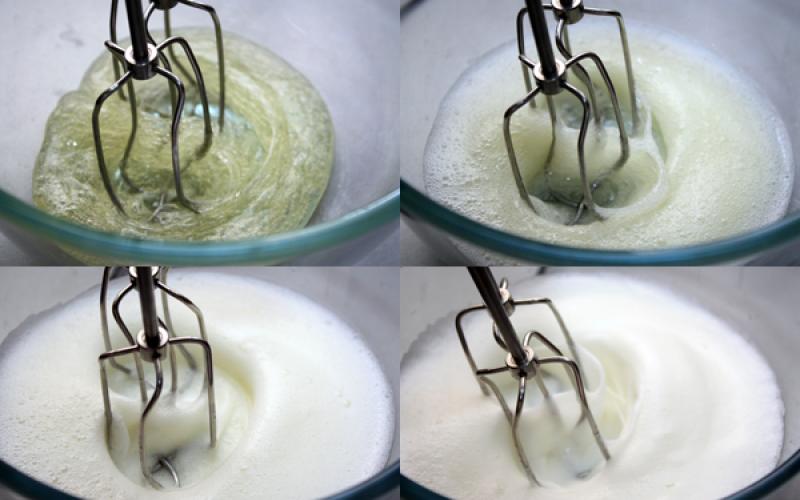By ordering products under your own brand, you increase the attractiveness of your stores and at the same time increase profitability.
Advantages of the production of goods under private label (Private label):
- You expand your product offer with a unique assortment designed specifically for your customers.
- Reduce the incoming cost of goods up to 50% due to the absence of intermediaries.
- Get more control over production, product quality, pricing and distribution.
- You get a higher (more than 40%) profitability from the sale of goods under private label compared to branded goods.
Advantages of private label production with PLG:
- Saving- We do not spend money on marketing, and therefore we do not overprice our products. You can attract additional consumers with affordable prices. Products of similar quality famous brands are much more expensive.
- exclusivity- private label products can only be found in your distribution network, thus you keep your consumer.
- High English quality We manufacture in the UK to the highest European quality standards.
- Getting RU- we provide registration of products under your private label as goods medical purpose in accordance with the legislation of the Russian Federation.
- Convenient logistics- we are ready to deliver the goods at a convenient time for you, in the right quantity, anywhere in Russia and take into account all your wishes in terms of logistics.
- Storage- we give you the opportunity to store the annual volume of goods in our warehouse and ship as needed.
- Flexibility- we have the ability to produce large and small batches of goods and quickly develop new products, taking into account the individual needs of the customer.
- Professionalism- Our team consists of highly experienced and highly qualified specialists. Any of your requests will be worked out in detail. We work quickly, smoothly, professionally.
For a long time we refused to manufacture products under private label. This was largely due to the positioning of the chain and the specifics of the assortment: in Russia, much of what we offered to customers could not be produced, there were no companies capable of guaranteeing high and stable quality, and the modest volume of sales compared to the market made working under a private label economically unprofitable, because the price was too high.
The terms of trade are determined later by the sales department together with other suppliers of the manufacturer's brands. To develop a branded product, one must first understand the market, taking into account factors such as the strength of the leader, the number of existing suppliers, and the degree of innovation, since own brands can serve as a negotiating lever for the commercial team. For this reason, when a supplier has a high bargaining power, the development of own brand products aims to create the best conditions for the commercial team, since it can provide Alternative option purchases.
Nevertheless, positive changes have begun: worthy manufacturers have appeared in Russia, we have concluded contracts for the production of private label products with a number of foreign companies, and the number of outlets of the network has grown significantly. Today, Azbuka Vkusa's assortment includes five trademarks: Prosto Azbuka, Our Farm, Selection, Already Done and Almost Done! The last two brands are produced in our own kitchen factory.
However, in this aspect, when a leading brand performs well in its segment and there are few competitors in this category, it requires a higher degree of innovation in order to compete in this market. The first price represents a lower price brand than the leading brand, usually representing the cheapest option. The innovation segment focuses on absolutely innovative products not yet found on the market, fulfilling the role of testing sales with consumers. The second most expressive group is the first price, which is 30% of this amount.
The main requirements for our private labels are product quality and supply stability. The quality is monitored by the manufacturers themselves and representatives of our quality department (they check before starting cooperation and then periodically go to production). After receiving the goods, we check them in our own quality laboratory, where physical, chemical and microbiological analyzes are carried out. Goods that have successfully passed laboratory testing receive the Q-lab marking, confirming the high quality of the products.
In terms of in-house product innovation, the retail chain reported that initiatives usually start with retailers, with in some cases manufacturers offering new product creation. Product development begins when a new need is discovered. At this point, you need to select a segment for the product and, in partnership with manufacturers, correct the characteristics of the item being developed. At this stage, it is necessary to search for qualified suppliers who are willing to develop a product in accordance with specifications and prices.
The price of private label products is not always lower. We strive to offer the best value for money. The advantage in price is usually explained by the fact that the number of intermediaries between the retailer and the manufacturer is reduced. There is no need to include promotional costs in the price: products are promoted in retail outlets using POS materials and a more advantageous display on the shelf.
It should be noted that the supplier must hold certain certifications and be regulated in accordance with the tax, tax and labor protection obligations that are required of any supplier regardless of whether they are own brands.
After this stage, the manufacturer submits some samples to the Quality Control Department for biochemical, sensory, blind tasting and other tests. Finally, the brand development team is responsible for standardizing the packaging design and layout, and the supplier is responsible for their own costs. The final stage of developing a self-branded product occurs with the selection of a supplier that meets the needs of the company in accordance with the target consumer, product specifications and target price.
Our stores work with 90 regional manufacturers. Among them are both large companies that produce a whole line of products for us, and very small ones that make just one product for us.
Producers agree to work under our trademark, as this is a real chance for them to get sales in Moscow. The Moscow sales market is a dream, and getting into large chain stores is not so easy. We communicate with many manufacturers, some of them have worked or are working with chain stores and are not always satisfied with this cooperation. It's no secret that chain stores have a rather strict system of fines, bonuses, "entrance" tickets. We don't have all that. All that we require from the manufacturer is natural products without chemicals. We take care of all other problems (transportation, storage, sale, write-offs).
It was found that retail does not provide any financial investment for manufacturers to develop new products. So when an idea comes up, the retailer contacts potential suppliers and only commits to buying and placing a predetermined amount of product on their shelves as a form of testing. In this sense, Nantes says that in Food Industry the costs of developing new products are relatively lower, which reduces the damage if the project fails.
Thus, if public acceptance is positive, new orders can be made, otherwise the retailer must sell them at a reduced margin and notify the manufacturer of the breach of agreement. According to the interlocutor, in situations of launching a new product with its own brand, ownership always belongs to the suppliers, even if the idea or initiative starts with the retailer. In such cases, the retailer informally asks what this New Product will be sold exclusively by its network for the first six months so that some marketing efforts can be made.
The price of products depends on the distribution network. Specialty stores like ours tend to have higher requirements. But if they are honestly executed, then the selling price is also higher. Specialized stores do not participate in the food wars of large retail chains, they do not force manufacturers to reduce the cost of production for the sake of a tangible price reduction. close-up retail chains, counting on the mass consumer, as a rule, do not care about the capabilities of the manufacturer and product quality. The main thing is the price at which this or that product will be sold.
This initiative stems from the desire of retailers to develop a sense of exclusivity with the consumer through their own brands. After this period, it is interesting that the product is widely advertised and sold in most stores, so it reaches maturity in its life cycle.
With regard to the specification of the brand's own product, it strives to maintain the same standard for all customers in search of economies of scale in the production process, in particular in the case of innovative products. As far as positioning is concerned, it works with product differentiation through continuous improvement in quality, packaging and appearance, in addition to suggesting possible innovations, in accordance with the requirements of the project.
Hope Paderina
Purchasing Director own brand Auchan
How to create your own brand "Auchan":
A technical task is created with the requirements for the product: what technology and under what conditions it should be produced, what taste qualities it should have, what its packaging should be, and most importantly, at what price Auchan wants to offer it to its customers.
The development of the brand's own products is carried out in accordance with the needs and requests of customers. Therefore, upon contact, they initially offer products that already exist in the manufacturer's line, and if there is interest, they can make some adjustment or even development of new elements approved by the sales team.
It should be noted that these things were unheard of in the mass market, however, the supplier did not establish an exclusive contract with a retail customer with the ability to offer such products to other customers. Development costs associated with resource sourcing, sample development and testing are the responsibility of the manufacturer. For this reason, prior to development, internal feasibility studies and the ability to meet demand with installed capacity are carried out.
On the basis of the terms of reference, a tender is held, in which all interested manufacturers can take part. Any company that offers the highest quality product at the best price, has the appropriate technology, personnel and documentation can win the tender.
At the tender stage, the Auchan quality department conducts a blind tasting. Questionnaires give marks for the quality and taste characteristics of the samples. The data is processed by a special program, and the best products are selected based on the results. During the tender and after it, the production conditions are monitored by independent auditors who monitor all technological processes of production - from the composition of raw materials to packaging.
In terms of packaging, the graphics are designed by the retail agency, while the cost is the responsibility of the manufacturer. Thus, retail indicates an agency that develops a standard design and layout for all of its products in order to create a brand image with the consumer.
As a product line, it produces cheese bread, lasagna, pancakes, pizza and snacks. It has a manager who works exclusively with the own brands product development process, responsible for the initial contact with customers until product specifications are determined.
Products are tested in an independent laboratory for compliance with state and international standards.
Creation of packaging design for the brand "Our family". The main criteria are recognition and memorization.
Signing an agreement with an applicant who meets all the requirements.







